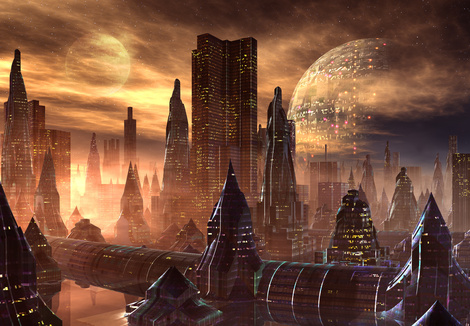Two in three graduate jobs may not exist in 2025.
With the prominence of ethically divisive technologies such as emotionally intuitive artificial intelligence and cloning, growth sectors and the job landscape in 2025 may be virtually unrecognisable to us today.
In just under a decade’s time, we could be looking at jobs as diverse as sustainable power innovators, or personal content curators, according to a study by Microsoft Surface and The Future Laboratory.
According to Microsoft’s Windows and Surface lead, Ryan Asdourian, these jobs aren’t as far removed from current consumer needs. “While these jobs may seem like the realms of science fiction, in reality they are indicative of changes that we are already seeing today,” he says.

A new study from Microsoft Surface and The Future Laboratory, ‘Tomorrow’s Jobs’, explores how technology is set to change the career landscape
“Disruption” has been the mot du siècle with reason. With an increase in new, innovative changes to the traditional 20th century business model, we are seeing multiple sub-sectors emerge, with increasingly demanding consumer needs.
For example, with the sharing economy growing in parallel to the on-demand economy, we’re seeing the emergence of a cross-over sector: the on-the-go economy. With it comes a whole host of business opportunities.
“Technological change, economic turbulence and societal transformation are disrupting old career certainties, making it increasingly difficult to judge which degrees and qualifications will remain a passport to a well-paid and fulfilling job in the decades ahead,” Steve Tooze, foresight editor from The Future Laboratory explains.
“In the next decade, a technological revolution – essentially a second industrial revolution – will open up inspiring and exciting new career opportunities in sectors of the economy that are only in their infancy today. The trick for graduates is predicting what those new jobs will be.”
Considering that the class of 2010 didn’t need specific qualifications to prepare for the sharing economy, why should the class of 2025?
The hottest jobs of 2025
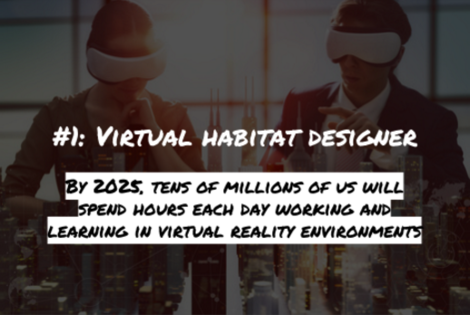
Virtual habitat designer: By 2025, tens of millions of us will spend hours each day working and learning in virtual reality environments.
A VHD will design and create these worlds.
“These designers will be the superstar pioneers of the industry, leaving behind game design and joining product teams to create exciting new entertainment, work and learning environments.” says Dave Miller, recruiter at Artefact.
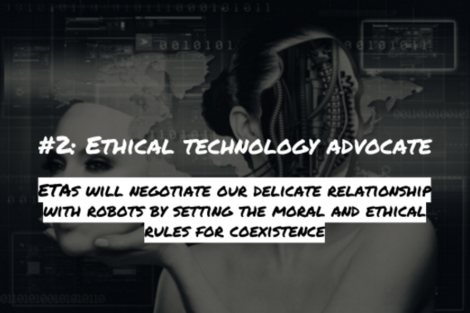
Ethical technology advocate: From personal assistants to manual labour and customer service, the next decade will see the rise of the robots.
There will be an extra 55,790 new jobs in the field of robotic engineering by 2018 alone, research by Recruiter.com reveals.
An ETA will negotiate our delicate relationship with the robots by setting the moral and ethical rules under which the machines operate and exist.
Essentially, they will make sure the robots don’t take over.

Digital cultural commentator: Visual communication will dominate social media. This is already apparent with Instagram set to grow 15 per cent this year, compared to the expected growth of the wider social media sector at just 3 per cent.
Workers who can master this shared language of imagery will be much sought after as communicators to mass audiences by businesses and art institutions.
DCC’s will effectively communicate entire stories through an image alone.
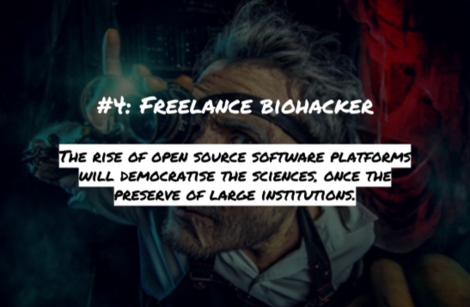
Freelance biohacker: The rise of open source software platforms will democratise the sciences, once the preserve of large institutions.
Citizen scientists will take the reins back.
We’re already seeing biohacking take off, with open-source gene editing tool CRISPR already allowing thousands of scientists around the world to collaborate on searching for treatments for depression, schizophrenia, autism and Alzheimer’s.
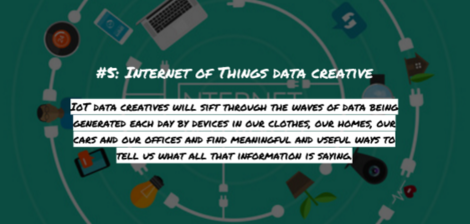
Internet of Things (IoT) data creative: IoT is already transforming the world we live in, with devices from cars to home electrics being embedded with electronics, software and sensors that allow them to collect and exchange data.
IoTDCs will sift through the waves of data being generated each day by devices in our clothes, our homes, our cars and our offices and find meaningful and useful ways to tell us what all that information is saying.

Space tour guide: Already on the horizon thanks to the likes of Virgin Galactic, Earth orbit will become the new frontier for adventurous travellers by 2025.
And a whole new category of jobs will come about to make the space journeys safe and enjoyable.
These tour guides will use their knowledge to construct visits to the more interesting parts of Earth’s orbit.
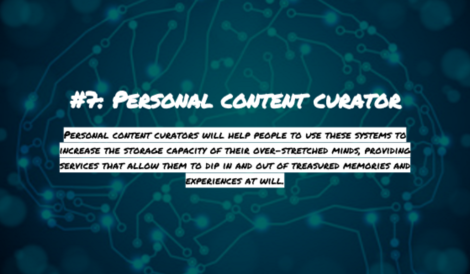
Personal content curator: Software-brain interfaces, pioneered by teams of neuroscientists, will have started to enter the mainstream by 2025.
This will allow mass audiences to read and capture thoughts, memories and dreams.
Personal content curators will help people to use these systems to increase the storage capacity of their over-stretched minds, providing services that allow them to dip in and out of treasured memories and experiences at will.
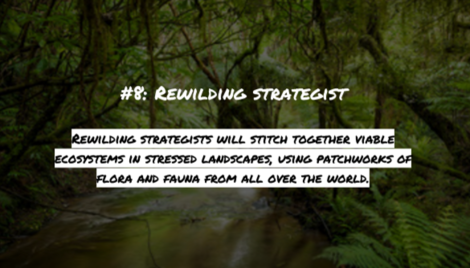
Rewilding strategist: By 2025, the planet will struggle to cope with the strain of supporting nine billion humans.
Traditional conservation won’t be enough.
Rewilding strategists will stitch together viable ecosystems in stressed landscapes, using patchworks of flora and fauna from all over the world.
They will reintroduce plants and animals that have been extinct in a region for centuries to create resilient and vibrant landscapes

Sustainable power innovator: Resource depletion will mean a more widespread shift to sustainable energy.
The main struggle here will be storing power for the days when the wind doesn’t blow or the sun doesn’t shine.
SPIs will be experts in chemistry and material science, using their skills to invent new battery storage capabilities to cope with the power demands of an increasing reliance on the Internet of Things.
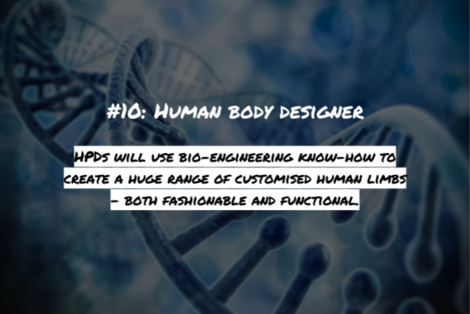
Human body designer: Advances in medicine and engineering will extend the average length of healthy human life, with generating replacement tissues and organs becoming affordable.
HPDs will use bio-engineering know-how to create a huge range of customised human limbs – both fashionable and functional.


